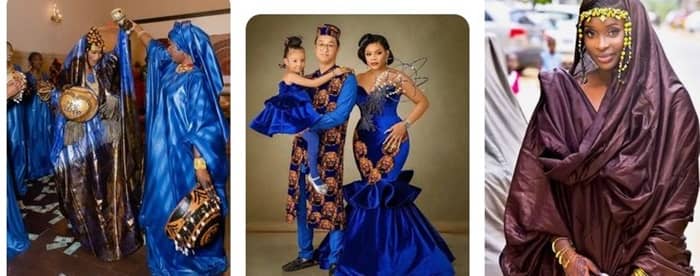Nigeria Dressing Code

Dressing Code in Nigeria: Nigeria is a culturally diverse country with a variety of ethnic groups, each with its own traditional attire and dressing customs. The dressing code in Nigeria can vary based on factors such as region, occasion, and individual preferences. Here are some general aspects of dressing codes in Nigeria:
1. Traditional Attire in Nigeria
Traditional Attire: Many Nigerians wear traditional clothing that reflects their ethnic identity. These may include colorful and intricately designed fabrics, such as the Ankara or Aso-oke, worn as wrappers, dresses, or tailored suits. The styles and patterns can vary significantly between ethnic groups. Traditional Attire in Nigeria
2. Occasional Wear in Nigeria
Occasional Wear: Nigerians often dress formally for special occasions, ceremonies, and celebrations. Women may wear elaborate headgear, gele, and stylish dresses, while men may wear traditional agbada, fila, or modern suits.
3. Casual Wear in Nigeria
Casual Wear: In everyday settings, casual wear is common. Western-style clothing, such as jeans, T-shirts, and casual dresses, is widely accepted. However, modesty is generally valued, especially in more conservative regions.
4. Religious Dress Codes in Nigeria
Religious Dress Codes: In predominantly Muslim areas, such as the northern regions, traditional Islamic clothing is common. This includes attire like hijabs for women and traditional caps and robes for men. In predominantly Christian areas, Western-style clothing is prevalent, but modesty is still valued.
5. Corporate Attire in Nigeria
Corporate Attire: In professional and corporate settings, business attire is common. Men often wear suits or traditional formal wear, while women may choose between Western-style business attire and traditional clothing, depending on the workplace culture.
6. Modesty in Nigeria
Modesty: Modesty is generally valued in Nigerian culture, and both men and women may dress modestly, especially in more conservative environments. It's common for women to cover their shoulders and avoid overly revealing clothing.
7. Colors and Patterns in Nigeria
Colors and Patterns: Nigerians often embrace vibrant colors and bold patterns in their clothing. Different colors may have cultural or symbolic significance, and patterns can vary between ethnic groups.
8. Footwear in Nigeria
Footwear: Footwear choices depend on the occasion. While traditional ceremonies may call for sandals or cultural footwear, formal occasions may warrant polished shoes. Sneakers and casual shoes are popular for everyday wear.
9. Religious Respect in Nigeria
Religious Respect Nigeria is religiously diverse, with Islam and Christianity being the dominant religions. Respect religious practices and be mindful of dress codes when visiting religious sites.
Note Nigeria's dressing code: It's essential to note that Nigeria's dressing code is diverse, reflecting the country's rich cultural tapestry. When visiting or living in Nigeria, it's advisable to observe and respect local customs and dress codes, especially in more traditional or religious communities. Additionally, specific dress codes may vary based on the specific cultural, religious, or professional context
Traveling to Nigeria
Traveling to Nigeria can be an exciting experience, as the country is rich in culture, diverse landscapes, and vibrant cities. However, it's important to be well-prepared for your trip. Here are some general tips for traveling to Nigeria:
When visiting Nigeria national parks When visiting these national parks, it's important to adhere to park regulations, engage in responsible tourism practices, and consider hiring local guides for a more enriching experience. Additionally, be mindful of the current safety and security conditions in the regions surrounding the parks.
Nigeria Visa Requirements
Visas are required for foreign citizens traveling to Nigeria. Foreign nationals may apply for a visa online in advance of travel. Applicants may complete the e-visa application form and make payment online with a credit card or bank transfer Nigeria online visa page and Visa Requirements





 |
|  |
|  |
|  |
| 